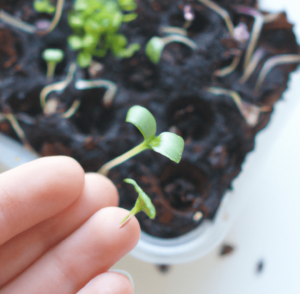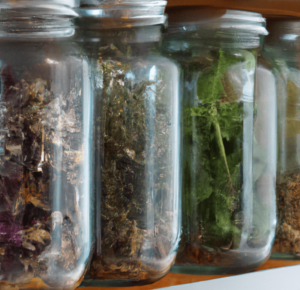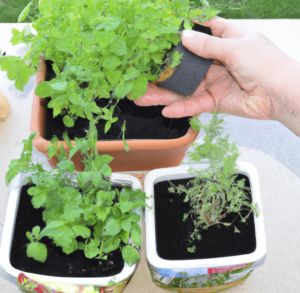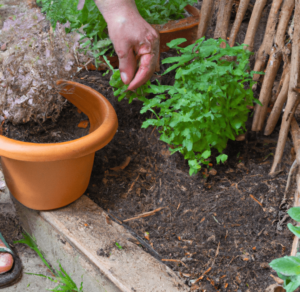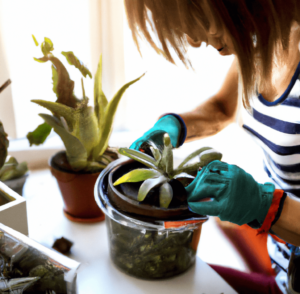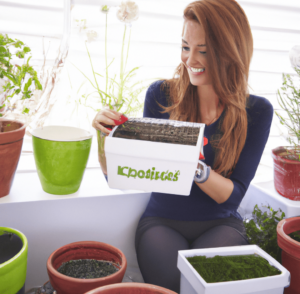The regulation or management of pest species, such as insects and rodents that can impair crops, human health, and economic stability, is referred to as pest control. There are various methods of pest management without the use of pesticides, such as physical and biological control approaches. Pest control is important for maintaining the ecosystems’ equilibrium as well as for safeguarding the economy and public health. However, this article covers pest control for beginners for anyone that has questions on the subject.
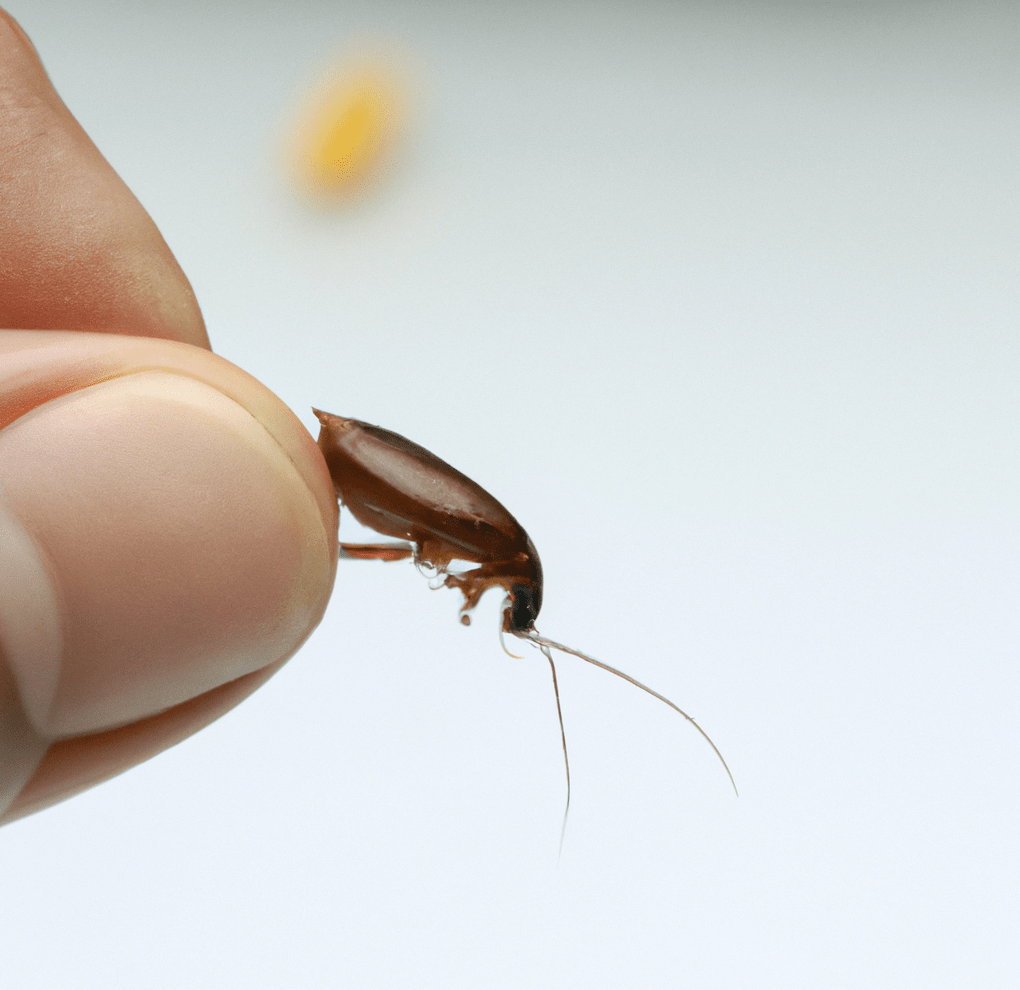
Identifying Pests
Accurate pest identification is a necessary first step in pest control for beginners. This knowledge can be used to decide whether using a pesticide or hiring a pest control specialist is the best line of action. The safety and health of people carrying out pest control procedures, as well as those residing in and using the treated area, can also be ensured by proper pest identification.
Signs of Infestation
It might be challenging to spot infestations, especially in the beginning stages. But there are some telltale symptoms to watch out for that can point to pests in a building, whether it be residential or commercial which is the first step in pest control for beginners. These include the presence of pests themselves, nests, gnaw marks or droppings. If any of these symptoms are present, it might be time to reevaluate your need for pest management and think about hiring a specialist.
Types of Pests Common in Residential and Commercial Areas
Pests of all kinds, from insects to rodents, are frequently a problem in residential and business locations. These pests can harm property, disperse diseases, and have a negative influence on the economy and public health.
You can prevent infestations in your house or place of business by taking the required precautions if you are aware of the local pests that are most frequently encountered. This may include learning how to properly water and fertilize your garden or use insecticides.
Ants, bed bugs, cockroaches, and rats are a few pests that are frequently seen in residential locations. Pests including flies, mice, and stored goods pests can be particularly troublesome in business locations. To properly manage these pests and reduce the potential harm they can cause, a pesticide or the assistance of a pest management specialist may be required.
How to Take a Sample for Identification
A crucial step in determining the type of pest present and the best pest control for beginners’ strategies is taking a sample of the suspected bug. If a pesticide is required, it is crucial to pick one that is efficient against that particular insect and to adhere to all safety instructions and precautions. To handle insect infestations and promote a safe and healthy environment, hiring a pest control professional can also offer helpful advice and knowledge.
Prevention
To protect health and safety in homes and places of business, pest infestation prevention in gardening is essential. Many different types of pests can be efficiently controlled by pesticides, but it’s crucial to apply them correctly and carefully to reduce any potential risks to people and the environment. Since these businesses have access to the most cutting-edge and efficient pest control techniques as well as the knowledge required to utilize them safely and efficiently, hiring a professional pest control service is frequently the best approach to ensure that pests are adequately managed. Regular pest control treatments can also aid in stopping pest issues from growing and becoming more challenging to handle. You may efficiently manage pests while preserving the health and safety of those around you by taking preventative actions.
Sanitation and Housekeeping
Pest infestations can be avoided with good hygiene and housekeeping techniques. Pests find it harder to grow in a clean, well-maintained environment, which can help cut down on the need for pest control services. It’s crucial to frequently clean and disinfect surfaces, store food correctly, and clear away any waste or clutter in order to maintain a clean and hygienic atmosphere.
Professional cleaning services can contribute to upholding good standards of hygiene and housekeeping, but it’s equally critical for people to actively maintain their own clean, clutter-free surroundings. But learning about pest control for beginners by regularly checking and cleaning locations like the kitchen and bathroom that are prone to pest infestations can reduce the need for pest control services. You can routinely ask bugs, “Who’s the boss?” and make sure that your living and working places are clear of intruders by regularly practicing good sanitation and cleaning.
Exclusion Methods
Exclusion measures, which refer to physical barriers that stop pests from entering or residing in a specific region, are an important part of integrated pest management. These techniques might be as straightforward as adding door sweeps, filling in wall cracks, or using airtight food containers, or they can be more difficult like installing screens on windows or vents. Exclusion techniques try to keep pests out of a certain region without using hazardous chemicals, making them a humane and efficient approach to pest control.
You need to know what pests you’re dealing with first and you might also need the aid of a specialist in pest management or maintenance personnel for the building who can help locate and fix access spots, put up barriers, and keep an eye out for indicators of pest activity.
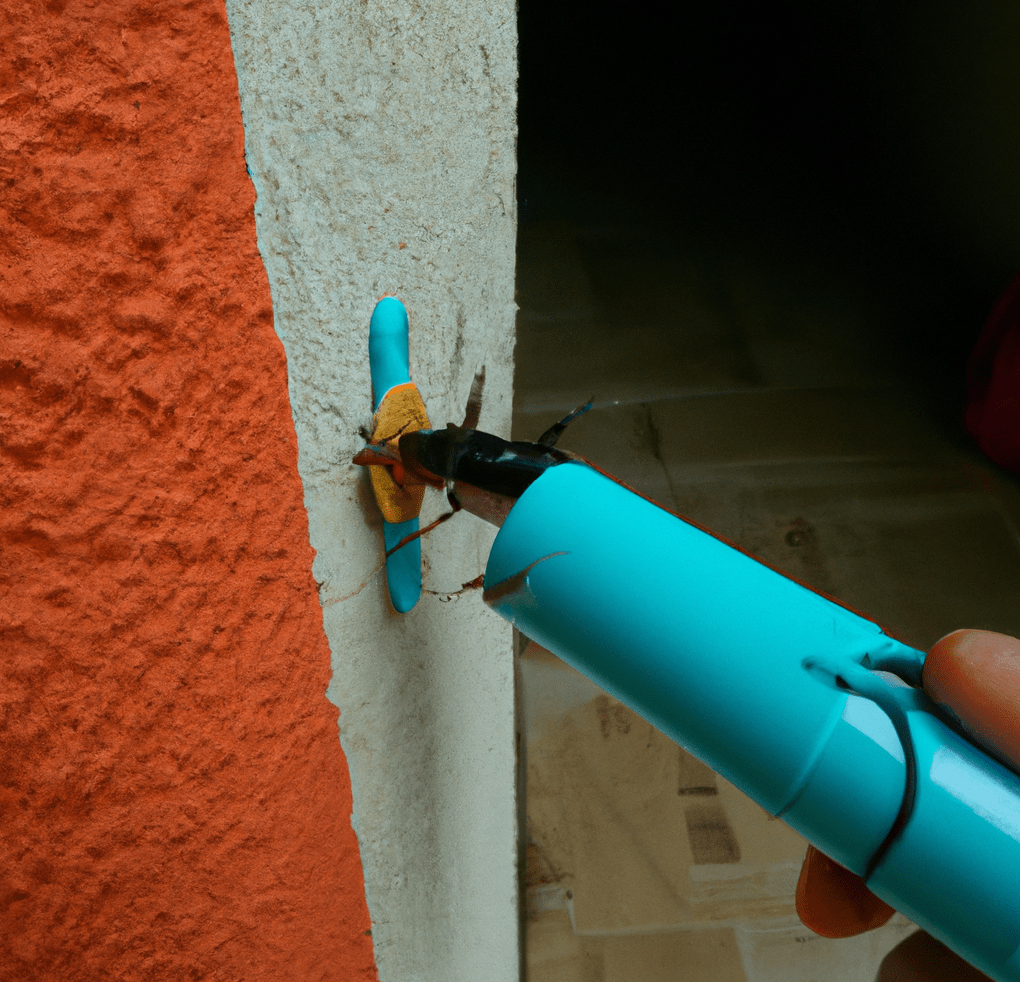
Habitat Modification
Of course, you can use habitat modification which involves altering the environment to make it less inviting to pests. This strategy is frequently used in conjunction with other pest management techniques such as pesticide treatment, exclusion, cleanliness, and housekeeping.
You can look up a gardening guide to make outdoor spaces less appealing or eliminate food and water sources, enhance drainage, or decrease pests’ access to cover and hiding areas. It’s harder for pests to survive and reproduce when the habitat is altered in this way, which helps to lessen the need for pesticide applications and other types of pest control.
Non-chemical Control Methods
Non-chemical control methods are pest management techniques that don’t make use of pesticides. These techniques may consist of:
- Physical Extraction
- Natural Predators
- Traps
In order to successfully implement non-chemical control approaches, a multidisciplinary approach frequently necessitates the involvement of staff, facility maintenance staff, and, in certain situations, professional pest control services.
Traps
By luring them in and catching them, traps are an easy and efficient way to manage pests. Larger infestations or harder-to-control pests like rodents may necessitate the use of professional pest control services. Traps must be properly baited and set in locations where pests are known to move in order to be successful as a pest control for beginners technique. A thoroughly integrated pest management program that also uses other non-chemical control techniques may include traps.
Physical Removal
Pests must be physically removed, either by hand or with the aid of instruments. This technique, which is frequently used by employees, works well for collecting live animals or for modest pest infestations like insect infestations. For certain businesses, physical eradication of pests is a safe and affordable alternative to chemical pest management. However, professional pest control services can be required in cases of severe infestations or for pests that are challenging to capture.
Natural Predators
Natural predators are other creatures that are used in pest control for beginners. In order to lower insect populations in a sustainable and environmentally responsible way, this non-chemical form of pest control makes use of the ecosystem’s natural food chains. Utilizing natural predators can also lessen the need for pesticides, which can have detrimental effects on the environment and human health.
Using natural predators to control pests is not only a safer choice, but it may also end up being more cost-effective in the long term.
Chemical Control Methods
Pesticides are used in chemical control procedures to keep pests under control. Chemicals known as pesticides are applied to kill or deter pests and are a useful technique for reducing pest populations. However, because they can have a harmful effect on both human health and the environment, it is crucial to use them with prudence and only when necessary, and may not be the first choice in pest control for beginners.
Types of Pesticides
Different pests call for different pesticides, and each form of pesticide has a unique mix of benefits and drawbacks. Determining the best alternative for a certain insect problem can be aided by understanding the many types of pesticides.
The principal kinds of insecticides consist of:
- Pesticides with a focus on controlling insects are known as insecticides.
- Pesticides with a focus on controlling weeds and other plants are known as herbicides.
- Rodenticides are pesticides created specifically to control rodents like mice and rats.
- Pesticides with a focus on controlling fungi are known as fungicides.
- Pesticides created expressly to control bacteria are known as bactericides.
Professional pest control services can help you with the safe and efficient application of the pesticide as well as provide expert guidance on the best kind of pesticide to use for a specific pest problem.
Proper Application and Safety Precautions
If you’re going to use a chemical product in pest control for beginners, keep the following in mind:
- Reading and according to the directions on the label: The pesticide’s label contains crucial details on how to use, handle, and store it properly.
- Wearing protective clothes and tools is important to avoid pesticide exposure. This includes gloves, goggles, and a mask or respirator.
- Keeping pesticides secure in order to avoid contamination or unintentional consumption, these products should be kept in a closed cabinet or area that is separate from food and drink.
- To avoid accidental exposure or ingestion, pesticides should always be kept in a safe place, away from your child or pet.
- Avoid spraying when it is windy to ensure that the pesticide is delivered only to the intended target and lower the risk of exposure to people and non-target species.
Professional Pest Control Services
An essential part of maintaining a secure and healthy home environment is pest control. In order to efficiently manage and get rid of pest infestations, professional pest control services use pesticides and other techniques that pest control for beginners just can’t compare to.
These services place a high priority on health and safety, controlling pests using safe and efficient methods while limiting exposure to dangerous chemicals. People and organizations can preserve their health and the security of their surroundings by selecting a professional pest control service.
When to Call a Professional
Many people and companies struggle with knowing when to hire a professional pest control service. It is best to use professional assistance when:
- Pest infestations are common and difficult to manage with over-the-counter remedies.
- Insects that sting or rodents that spread illness are examples of pests that can be dangerous to human health and safety.
- When dealing with termite infestations, for example, pest management techniques necessitate specialized tools and training.
You may know all about pest control for beginners, but an infestation may just be out of your hands.
How to Choose a Reputable Pest Control Company
It’s crucial to take into account a number of criteria when picking a pest control business to make sure you’re working with a reliable and efficient service provider. Among the most crucial factors are:
- Qualifications and Staff Training: Look for a company with staff that is properly qualified and licensed to undertake pest control treatments.
- Experience and Reputation: Pick a business with a successful track record and glowing client testimonials.
- Use of Safe and Effective Techniques: Check to see if the organization uses pest control strategies like integrated pest management (IPM).
- Responsiveness and Availability: Look for a business that will respond quickly to your requests and follow up as necessary.
Bottom Line: Pest Control for Beginners
In conclusion, pest management involves adopting a variety of techniques, such as the use of pesticides, to manage pests and avoid property damage and health hazards. It is impossible to exaggerate how crucial continual pest control is for preserving the well-being and safety of a property’s residents.
We recommend that contact a seasoned pest control provider for further information and direction. Additionally, a number of sites, including governmental bodies and business associations, are accessible that offer details on secure and efficient pest control methods.
Pest Control for Beginners FAQs
How does pest control work?
Pest control is the management or control of pests, such as insects and rodents, which can be harmful to the agriculture industry, people’s health, and the stability of the economy. There are many ways to manage pests without using pesticides, including physical and biological control strategies. The balance of ecosystems must be maintained in order to protect the economy and the general welfare.
What common pests are there?
Termites, ants, cockroaches, mice, and bed bugs are a few examples of common pests.
Why is precise pest identification crucial?
The first step in pest management must be accurate pest identification and education because it will help choose whether to use pesticides or contract a professional. The safety and health of people doing pest control methods as well as those living in the treated area are also ensured by proper identification.
What symptoms indicate an infestation?
The presence of pests themselves, nests, gnaw marks, or droppings are indications of an infestation. While early infestations may be difficult to identify, routine inspections can help locate them and make them simpler to control.
Which pests are prevalent in home and business settings?
Ants, bed bugs, cockroaches, and rodents are frequent pests in residential environments. Pests including flies, mice, and stored goods pests can be particularly problematic in commercial settings.
Why is it important to collect a sample for identification?
A sample of the suspected insect should be collected in order to identify the type of pest present and the most effective pest control methods.
Why is prevention so crucial?
Preventing pest infestations is crucial for maintaining health and safety in residences and workplaces. The best way to ensure that pests are adequately managed and reduce any threats to humans and the environment is frequently to hire an accredited professional pest control service.
How can good hygiene and home maintenance stop bug infestations?
A pest infestation is less likely if the environment is kept clean and well-maintained since it is harder for bugs to locate food, water, and shelter.
What pest control techniques don’t use chemicals?
Pest management strategies without the use of pesticides are referred to as non-chemical control methods. These methods could include manual extraction, the use of predators found in nature, and traps.
What role does a multidisciplinary strategy play in non-chemical control techniques?
To successfully adopt non-chemical control approaches, a multidisciplinary approach frequently includes the participation of staff, facility maintenance personnel, and professional pest control services. Effective control requires a thorough study of the pests, their life cycles, habits, and the reasons causing infestations.
How do traps function in pest management?
Traps catch pests by drawing them in and setting them off. Although they can be a quick and effective approach to managing pests, larger infestations or more difficult-to-control pests like rats may call for the assistance of professional pest control services. To be effective, traps must be set up where pests are known to move and properly baited.
In pest control, what does physical removal mean?
Physical eradication entails actually getting rid of bugs, whether by hand or with the help of tools. Employees usually apply this method, which works well for capturing live animals and treating minor pest infestations like insect infestations. Professional pest control services could be necessary for specific situations, such as when dealing with difficult-to-catch pests or severe infestations in container gardens for beginners.
What kind of pest control are natural predators?
Natural predators like ladybugs or parasitic wasps are used to reduce pest populations.
What pest control techniques use chemicals?
Pesticides are used in chemical control procedures to keep pests under control. When used sparingly and only when necessary, pesticides can have negative impacts on human health and the environment. They are used to kill or discourage pests and are effective at reducing pest populations.
What kinds of insecticides are there?
Different insecticides are needed for various pests. Insecticides, herbicides, rodenticides, fungicides, and bactericides are the five primary categories of insecticides. When choosing a pesticide, it is important to consider the type of insect, the area, and any potential negative effects on the environment and human health.
What are the appropriate safety measures while applying pesticides?
In order to avoid exposure to pesticides, handling pesticides safely requires reading and adhering to the label’s instructions, wearing protective clothing and equipment, keeping them away from food and drink, being out of the reach of children and pets, and avoiding spraying during windy conditions.
What do experts in pest management do?
Professional pest control services are crucial for preserving a secure and healthy living space. With a focus on health and safety and minimizing exposure to hazardous chemicals, these services effectively control and eradicate pest infestations using a variety of methods, including the use of pesticides.
When should I make a call to a reputable pest control company?
If you are having problems with pests, you should contact a professional pest control agency right away.


